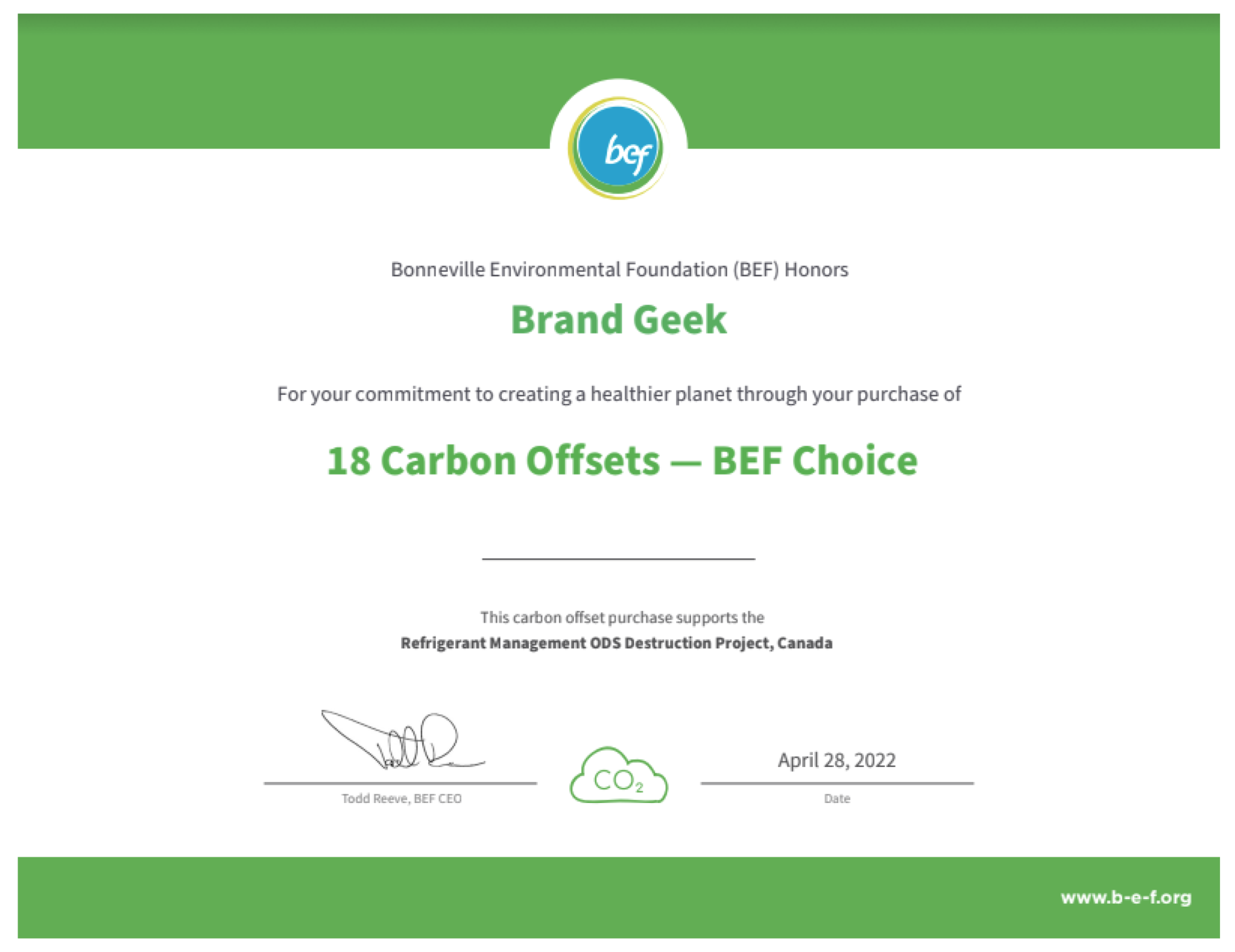Brandgeek proudly supports Mountain Area Preservation and is humbled to be…
Sustainable Brands 2012 launched with a Research Roundtable about the Latest Consumer Insights from SLM’s Top Research Picks
The esteemed panelists included:
Annie Longsworth, CEO Saatchi & Saatchi – panel moderator
Kevin Williams, Principal Brand Strategist, Pure Branding
Karen Barnes, VP Insight, Shelton Group
Jonathan Yohannan, EVP Corporate Responsibility, Cone
Henk Campher, SVP Business & Social Purpose, Edelman
Hernan Sanchez Neira, CEO Havas Media Intelligence
Kevin began by introducing Pure Branding, which helps CPG (consumer packaged goods) companies by enabling them to be more relevant in the market place and grow their business. Kevin recently finished an engagement on local food and today he shared some of the key findings and motivators behind this growing movement, which are important in their own right, as well as because local food is indicative of the greater shift that’s happening in our culture. At the local food level, it is occurring both with farmer’s markets and CSAs (Community Supported Agriculture, which have experienced a 4% growth rate from 400 organizations to 12,500 from 1990-2010. Pure Branding wanted to know WHY; what motivates people to engage in the local food movement?
When you want to know about food, you talk to foodies, of course! Pure Branding conducted an on-line survey of 5500 self-described foodies and 1100 farmers that provide food to farmer’s markets and CSAs, of which only 14% were Certified Organic (interestingly, 52% of the farmers said they didn’t need organic certification because their consumers know and trust them.) One important factor revealed by the survey is that alignment with community is a huge driver for the growth of the local food movement.
Even though a recent report by Kendall J. Eskine, Ph.D., assistant professor of psychology at Loyola University New Orleans, titled Wholesome Foods and Wholesome Morals? Organic Foods Reduce Pro-social Behavior and Harshen Moral Judgments eating organic food creates non-pro-social behavior claims that exposure to organic foods can negatively influence moral thinking and doing, Kevin’s research indicates that local foodies express very strong alignment with community. Food is one of the primary conduits of human interaction and local food creates even greater trust than organic food does.
Karen spoke next beginning by describing what she called her “existential funk,” which she blames on the sustainability stalemate. Sustainability is in a slump! Across the board, purchases and behaviors have declined over 3 year averages, save for the home improvement category. Further, the average number of green activities has remained steady at 12 activities per person out of 44 actions measured. 70% of people search for green products, but that has remained steady for years. Eco-labels and certifications are not working — only 25% of consumers use these as a key indicator to make purchases — and EnergyStar is the only eco label that’s widely recognized. Price premiums also serve as a deterrent to good purchasing behavior since this is more of a punishment than a reward.
Karen’s research indicates that consumers need motivation, encouragement, rewards and reasons to believe in order to create real, lasting change. Appeals to personal health are hugely important to many people and can serves as an effective motivator for them. Corporate sustainability stories — even those shared directly by the company itself – and particularly those conveyed directly on the packaging are important to influencing behavior. Information alone doesn’t spark behavior change, and bad news is more influential than good news (learning about dangers and risks influenced people greater than positive messaging.) Positivity influences preference; negative messages engender trust. Karen concluded by stating that sustainability is in a slump, but we cannot give up; we need to examine what’s working (social influence) and magnify it.
Jonathan shared some of the high level findings of the 2012 Cone GreenGap Trend Tracker research. 69% of U.S. consumers continue to consider the environment when making purchasing decisions, but this number has remained pretty constant during the past several years. The bad news is that consumers want companies to make it personal, relevant and easy for them to understand and make purchasing decisions. The good news is that companies can use this knowledge as a differentiator from a brand perspective. By way of example, Jonathan shared that Clorox recently launched a new mobile app that describes the ingredients within its products in response to the demand for such information.
75% of consumers say honesty is more important than environmental perfection, thought they do want companies to be as responsible as possible, in the manufacture, use and disposal of their products. Interestingly, Cone’s study revealed that disposal is top of mind when addressing issues of environmental responsibility: 42% of eco-sensitive consumers consider the disposability of the product, 33% consider the impact of using the product and only 25% consider the impact from the manufacture and transport of the product. Jonathan also suggested that we can learn a lot from others. He left us with this successful Chipotle ad (caution — it made me cry):
Henk is a recovering activist who now works with Edleman. Henk has found that consumers are hungry, concerned, vocal and empowered. Edelman’s 5th goodpurpose® global study demonstrated that consumers really do want brands to do everything, resulting in the reengineering of brand marketing. The power of purpose is helping to drive consumer purpose: profit + purpose is becoming the new normal. In 2008 57% of the population wanted companies to do good and well, and this number jumped to 76% in 2012. 87% of people believe business should place equal weight on benefit to society and their financial bottom line and consumers will both praise and punish companies for their behavior. Consumers in Bull markets believe that they have more power to make a difference and a responsibility to do so, while this is less true in Bear market societies. Bull market consumers are more willing to pay a premium for purpose. People are taking action all across the world in different ways and purpose can be a purchasing trigger with which we need to interact.
Hernan brought the panel discussion to a close by introducing Havas’s new Meaningful Brands 2012 study. 70% of brands would not be missed if they were to disappear. People have changed & now they not only want personal & functional outcomes, but also positive collective outcomes. Trust is the biggest driver for purchasing decisions and because of this creating ways for consumers to engage with brands besides pure consumption has become increasingly important. Brands must foster inter-connectiveness and collaboration. For brands to be meaningful they have to take a more active role in society. We have to create an environment that facilitates both consuming and communicating better. Brands that are meaningful create real benefits. People believe companies can (and should!) address societal and environmental problems better than Governments. Brands that contribute more to quality of life to consumers have a stronger connection with consumers. To be meaningful, brands must communicate differently. This combines three different channels: I talk (what the brand says) We Talk (consumers say) They Talk (others say).
Annie asked each of the panelists to share their perspective on the most important part of a strong message:
Karen said understanding what’s relevant and going to break through and giving solutions that are prescriptive.
Henk suggested keep it simple and make it relevant — the connection between product and societal benefits must be clear.
Jonathan urged brand owners to focus on brand benefits and draw down the aspects from the CSR report that are most relevant to the individual brands.
Kevin shared that we have to start changing our dialogue; we need to think of consumers as participants. We have to start asking them what virtues they aspire to that will make them participate with the brand.
Hernan opined that creating experiences that enable people to feel well and engaged by crafting communications more like concerts by creating that level of experience and engagement around meaningfulness and acknowledgement.
If sustainability is going to succeed, brand owners must engage their audiences on a personal level to become part of something greater than themselves that contributes to a better society for all.






Comments (0)